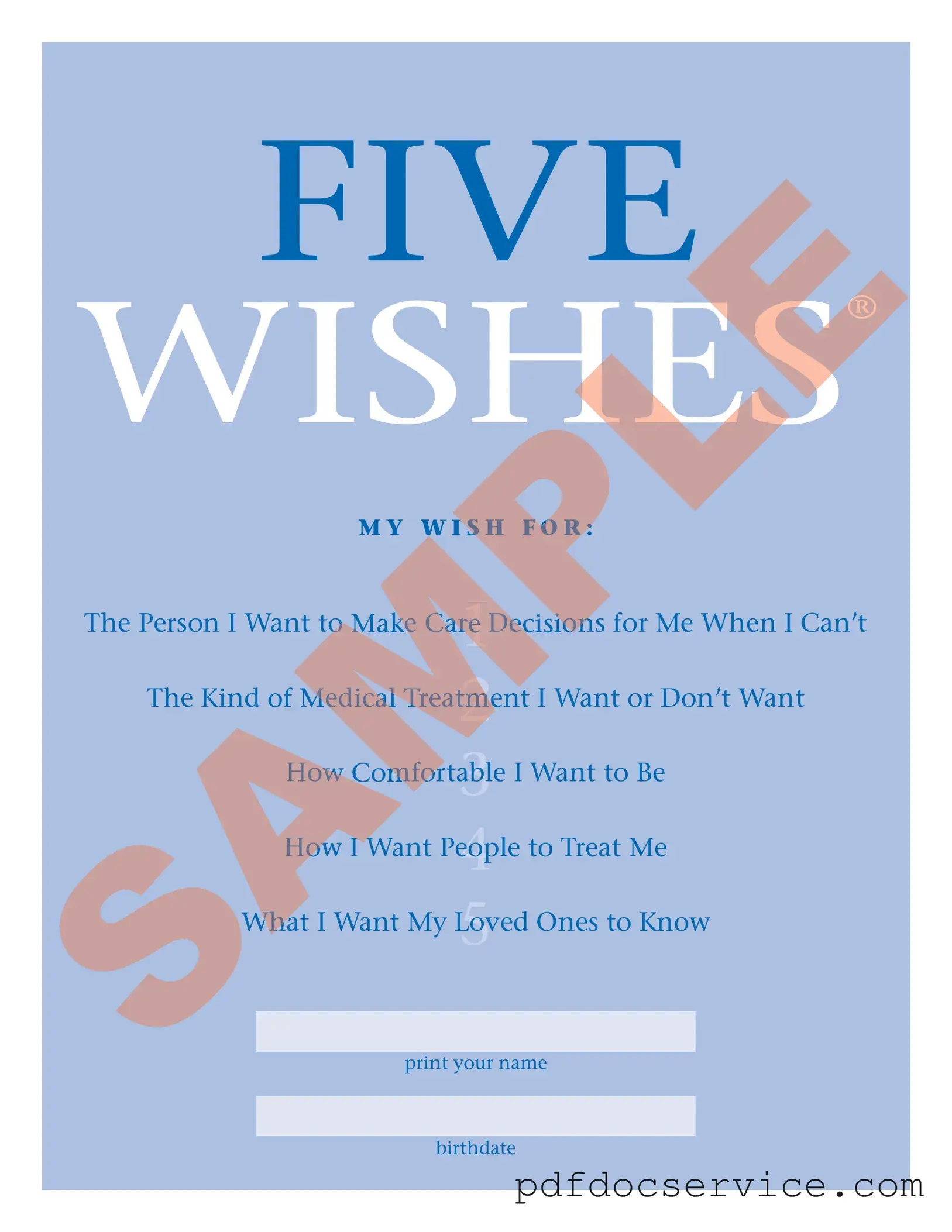Fill Your 5 Wishes Document Form
The Five Wishes Document is a unique form that allows individuals to express their personal, emotional, and medical preferences for end-of-life care. It empowers you to designate a trusted person to make health care decisions on your behalf if you are unable to do so. This easy-to-complete document ensures that your wishes are known and respected, providing peace of mind for both you and your loved ones.
Open 5 Wishes Document Editor

Fill Your 5 Wishes Document Form
Open 5 Wishes Document Editor

Open 5 Wishes Document Editor
or
Get 5 Wishes Document PDF
Finish the form now and be done
Finish 5 Wishes Document online using simple edit, save, and download steps.